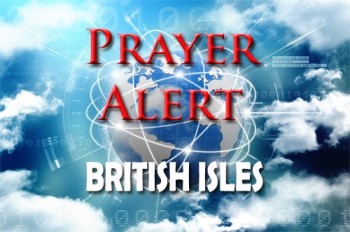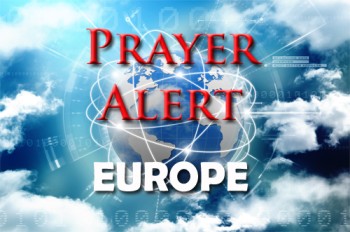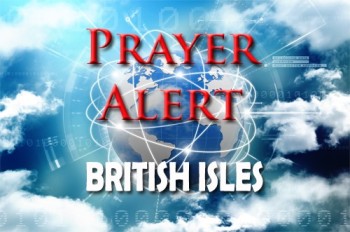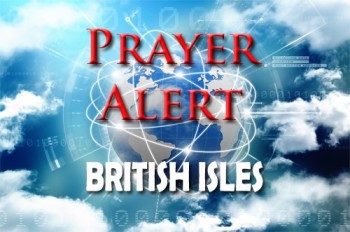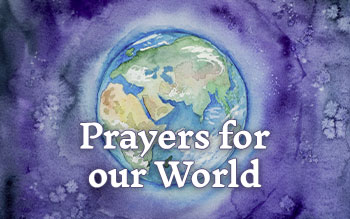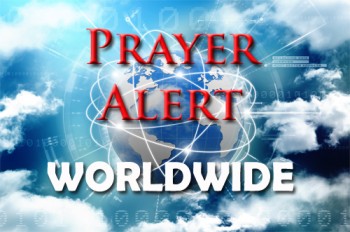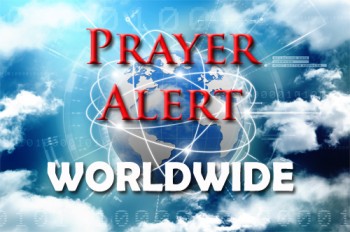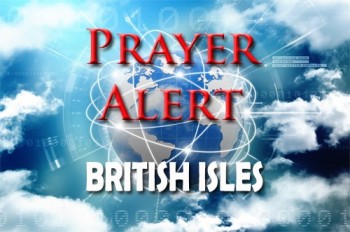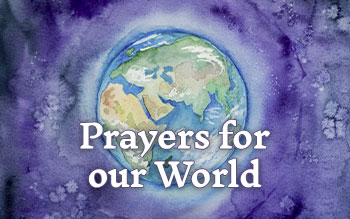Displaying items by tag: National Security
We need more people ready to fight, military chief says
Chief of the Defence Staff, Air Chief Marshal Sir Richard Knighton, has warned that the nation needs more people prepared to defend the country amid growing global instability and rising threats from Russia. He called for a 'whole-of-society response' to deter conflict, stressing the importance of strengthening regular forces, reserves, cadets, and the defence workforce. While he said the likelihood of a direct Russian attack on the UK remains remote, he highlighted intensifying hybrid threats, including cyber-attacks, suspected sabotage, and hostile surveillance near UK waters. He described Russia’s military as increasingly sophisticated, combat-experienced, and expanding in hard power, despite setbacks in Ukraine. The UK, he said, must become a 'harder target' to avoid war rather than provoke it. Building national resilience, he argued, goes beyond military strength and includes universities, industry, energy, healthcare, and manufacturing. With defence spending set to rise sharply, he emphasised the need to inspire young people to pursue careers supporting national security. Recent investments include £50 million for new defence technical colleges to address critical skills gaps.
Navy chief warns: fund defence or risk losing Atlantic to Russia
General Sir Gwyn Jenkins, head of the Royal Navy, has issued a stark warning that the UK risks losing its long-held maritime advantage in the North Atlantic unless defence funding increases urgently. He said Britain is 'holding on, but not by much’, as Russia invests billions into rebuilding its naval power - especially its Northern Fleet - even while fighting in Ukraine. Russian activity in the North Atlantic has risen by 30% in two years, including incidents such as the Yantar spy ship shining a laser at RAF pilots. Jenkins warned that the greater threat lies beneath the surface, where vital undersea cables and energy pipelines are vulnerable to hostile interference. The Navy itself is facing severe strain: more vessels are tied up in port than operational, recruitment shortfalls are acute, and years of cuts and failed procurement programmes have left the fleet hollowed out. While avoiding direct criticism of the Government, Jenkins highlighted the widening gap between ministerial promises and available funding. He outlined a vision for a modernised 'hybrid navy', though it would not be fully ready until 2029 - a timeline some fear may be too slow given rising global threats.
Responses to Trump’s criticisms of ‘weak, decaying’ Europe
Donald Trump has intensified his criticism of Europe, portraying the continent as weak’, ‘decaying’, and threatened by immigration. Using inflammatory language, he echoed ‘great replacement’ conspiracy themes, claiming that European countries risk becoming non-viable due to immigration. He insisted European cities such as London and Paris have fundamentally altered, and once again made a personal attack on London’s mayor Sadiq Khan. His remarks followed the recent release of a new US national security strategy warning of Europe’s supposed ‘civilisational erasure’ and signalling support for nationalist parties. European leaders reacted with dismay: Germany’s chancellor Friedrich Merz rejected the idea that Europe needs saving, calling parts of the strategy unacceptable. Pope Leo XIV also cautioned that the shift in US policy risks damaging the long-standing transatlantic alliance, and European Council president António Costa warned Trump not to interfere in Europe’s affairs (see).
UK must ‘actively prepare’ for a war on home soil
The UK’s newly released National Security Strategy warns that the nation must actively prepare for potential warfare on home soil. Citing escalating global instability, including threats from Iran and the ongoing war in Ukraine, it calls for 'national resilience exercises' involving the public, businesses, and academia, aiming to build preparedness against cyberattacks, sabotage, and hostile actions from states like Russia, Iran, and China. Cabinet minister Pat McFadden stressed the need for Britain to be 'clear-eyed and hard-edged' in facing these threats, while Keir Starmer pledged to increase defence spending to 5% of GDP by 2035. Critics, such as Priti Patel, argue that the government lacks a detailed roadmap for defence spending targets. Nonetheless, the strategy invokes the wartime spirit of national unity and determination, urging a whole-of-society response to future challenges and affirming optimism grounded in the resilience of the British people.
First Prime Ministers Question Time of New Parliament
Keir Starmer marked a significant milestone Wednesday with his first PMQs as Prime Minister, and the first for a Labour leader in over a decade. Here are some key takeaways: - The tone was notably more amicable than in past sessions. The leader of the opposition, Rishi Sunak, even made a self-deprecating joke, saying Team GB wouldn't want his advice on "how to win." - Sunak focused his questions on national security, an area where both Conservatives and Labour show strong support, particularly for Ukraine. - When Liberal Democrat leader Sir Ed Davey called for more support for carers, Starmer commended Davey as a "tireless campaigner" for carers' rights. - The SNP's Stephen Flynn adopted a more confrontational approach, criticizing the prime minister over the two-child benefit cap. - Several new faces appeared in the Commons. Questions came from Green Party co-leader Adrian Ramsay and Reform UK MP Rupert Lowe, while Reform leader Nigel Farage observed the proceedings. This PMQs session highlighted a mix of unity and contention as new leaders and members engaged in the debate.
Hong Kong: A year on from the imposition of the National Security Law
With each passing day, the boundary between Hong Kong and the rest of China fades faster.
The Chinese Communist Party is remaking this city, permeating its once vibrant, irreverent character with ever more overt signs of its authoritarian will. The very texture of daily life is under assault as Beijing moulds Hong Kong into something more familiar, more docile.
Residents now swarm police hotlines with reports about disloyal neighbours or colleagues. Teachers have been told to imbue students with patriotic fervour through 48-volume book sets called “My Home Is in China.” Public libraries have removed dozens of books from circulation, including one about the Rev. Dr. Martin Luther King Jr. and Nelson Mandela.
Under Xi Jinping, China’s leader, the Communist Party has grown tired of Hong Kong’s duelling identities. To the party, they made the city unpredictable, even bringing it to the edge of rebellion in 2019, when anti-government protests erupted.
Now, armed with the expansive national security law it imposed on the city one year ago, Beijing is pushing to turn Hong Kong into another of its mainland megacities: economic engines where dissent is immediately smothered.
The Hong Kong government has issued hundreds of pages of new curriculum guidelines designed to instil “affection for the Chinese people.” Geography classes must affirm China’s control over disputed areas of the South China Sea. Students as young as 6 will learn the offenses under the security law.
All of this has led to a wave of emigration. Many Hong Kongers have applied for immigration visas to the United Kingdom through their British National Overseas (BNO) status. According to a report by the Migration Observatory at the University of Oxford in May, 34,000 Hong Kongers have applied to live in the UK in the first three months of 2021, whilst The Times reports that 100,000 people have left in the last 12 months. This is particularly true of families with children who believe that the ‘old’ Hong Kong is now lost.
At the same time, at least three major US tech companies, Facebook, Twitter and Alphabet’s Google, have threatened to leave Hong Kong in protest at planned changes to data-protection laws as the pro-Chinese government cracks down on dissent.
The Asia Internet Coalition (AIC), an industry body backed by the US tech firms, warned Hong Kong’s personal data privacy commissioner that proposed amendments to privacy laws may force its members to stop investing there.
Sources: The Times, Irish Times, New York Times
Pray:
Pray with us for the safety of those who stand against China’s authoritarian rule of Hong Kong
Pray with us for wisdom as families and individuals determine whether to stay of leave
Pray with us for the Church in Hong Kong to remain strong in the face of suppression (Acts 20:28-30)
Hong Kong: national security
55 Hong Kong activists and former politicians were arrested for subversion under the controversial national security legislation. They were later released on bail without their passports or travel documents. Next they held a news conference where Fernando Cheung spoke. He is a politician who resigned his seat in protest alongside other pro-democracy lawmakers in November. He believes the authorities will press charges after they have sorted out any evidence they gathered via sweeping search warrants executed by over 1,000 police officers. He said this is an effective way to bar them from seeking asylum. Since the national security law was passed, numerous Hong Kong activists have fled into exile. Many believe police may have allowed the activists to go free on bail to avoid fuelling international criticism. US secretary of state Michael Pompeo called the mass arrests an outrage that demonstrated the Chinese Communist Party’s contempt for its own people and the rule of law.
USA: Biden transition - spy world is feeling uneasy
A series of sackings and appointments - with rumours of more to come - has created a sense of deep uncertainty around the US intelligence and national security community. Some believe this is part of an attempt by Trump to hold on to power; many others see it driven by a desire for personal revenge. But there remain fears that the uncertainty of a divisive transition could hold real dangers. The sacking of a number of top civilian leaders at the Pentagon, including the secretary of defence, was, many believe, just the start. Trump wants to achieve specific policy goals during his final days, like removing troops from Afghanistan. America's national security is accused of being in a ‘deep state’ of conspiring against him. In recent months, he has declassified information which he wrongly thinks supports his case. The head of cybersecurity is in trouble because he proved vote rigging was false.
Security alert upgraded
The UK terrorism threat has been upgraded to ‘severe’ after terror attacks in Vienna and France. This is its second-highest level, meaning that an attack is ‘highly likely’. Previously it was simply deemed ‘likely’. Home secretary Priti Patel said people should be alert but not alarmed, as it is a precautionary measure following the horrific events in Europe recently. The tipping point was the attack in Austria’s capital, where five people died in a country not known for being targeted by Islamists. It is well established that terror attacks in one country encourage copycats elsewhere. Pray for people to remain vigilant but not under any cloud of fear, and to report suspicious activity to the police without any fearful thoughts of crying ‘wolf’. Pray for MI5 and all security services monitoring suspected Islamist extremists.
Hong Kong 'seeking arrest' of fleeing activists
Police in Hong Kong are seeking the arrest of six pro-democracy activists living in exile in Western countries, including the UK, media reports say. The group reportedly includes former UK consulate worker Simon Cheng, well-known activist Nathan Law and US citizen Samuel Chu. They are wanted on suspicion of violating a new security law imposed in Hong Kong by Beijing, Chinese state TV reported, calling them "troublemakers". Hong Kong police declined to comment.
The development comes after legislative elections scheduled for September were delayed for a year by Hong Kong's government on Friday. It said the move was necessary because of a spike in Covid-19 infections, but the opposition accused it of using the pandemic as a pretext. The White House said the move undermined democracy.
Pro-democracy politicians had hoped to capitalise on anger in the Chinese territory about the new security law to win a majority in the Legislative Council (LegCo). Many in Hong Kong, a former British colony handed back to China in 1997, fear that unique freedoms meant to be guaranteed until 2047 are under serious threat.
The UK and Australia are among countries that have suspended their extradition treaties with Hong Kong in recent weeks. Germany did so on Friday - one of those reported to be on the new "wanted list" has received asylum there.
Who are the 'wanted'?
Chinese state TV network CCTV said six people were wanted on suspicion of inciting secession or colluding with foreign forces - both crimes can be punished with up to life in prison under the new security law.
The six, according to CCTV and Hong Kong media, are:
Simon Cheng, a former employee of the UK's Hong Kong consulate who was recently granted political asylum in Britain. Nathan Law, 27, a high-profile activist who has fled to the UK.
The Hong Kong residents ready to leave for the UK…
Samuel Chu, a US citizen. He is the son of Reverend Chu Yiu Ming, a Baptist minister who was one of the founders of the 2014 "Umbrella Movement". Mr Chu runs the Washington DC-based Hong Kong Democracy Council and said he last visited Hong Kong in November 2019. "I might be the first non-Chinese citizen to be targeted, but I will not be the last. If I am targeted, any American and any citizen of any nation who speaks out for Hong Kong can, and will be, too," he said.
The national security law carries extraterritorial provisions that say anyone, including non-Hong Kong residents, can be charged under it. China says the law is necessary to restore stability and order in the global financial hub.
Ray Wong, a pro-independence activist who fled to Germany in 2017 and is now in Britain, told the BBC that the list of "wanted" exiles had been drawn up to "intimidate" pro-democracy activists who are trying to drum up international support for their cause.
Lau Hong (also known as Honcques Lau), an 18-year-old now in the UK, first came to prominence in November 2017 when he brandished a pro-independence banner next to Hong Kong's leader Carrie Lam. "Come arrest me in the UK," he was quoted as telling a journalist on Friday.
Wayne Chan, another pro-independence activist, is in an undisclosed country. "For me, the situation faced by Hong Kongers is even more dangerous than what I face. I can't think too much about my personal safety," he told Reuters news agency.
More info: https://www.bbc.co.uk/news/world-asia-china-53616583
Pray: that the new security law will be overturned
Pray: for these 6 people and many more who have campaigned for their democratic rights and freedom of speech – that they will not be unjustly treated or imprisoned.
Pray: that the elections will not be unduly delayed, and that the rights and freedoms of the people of Hong Kong will be restored.
